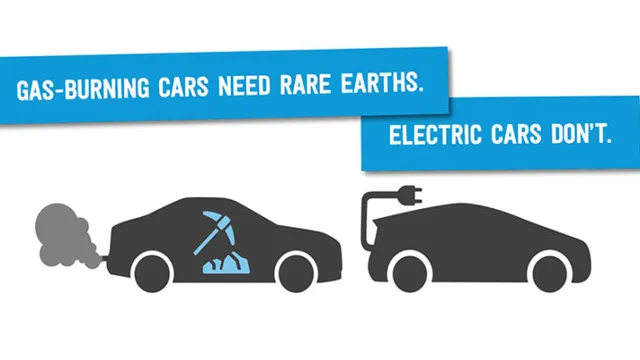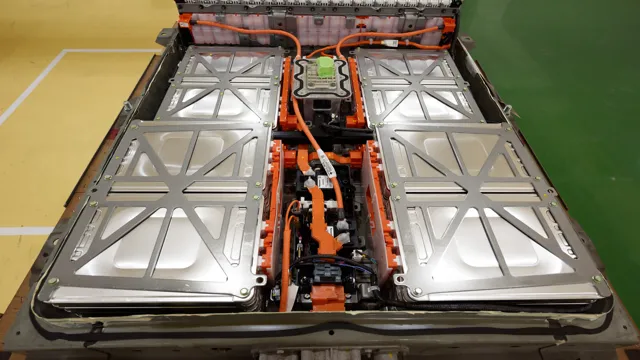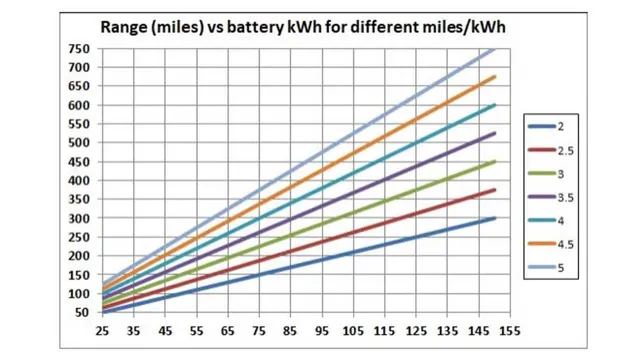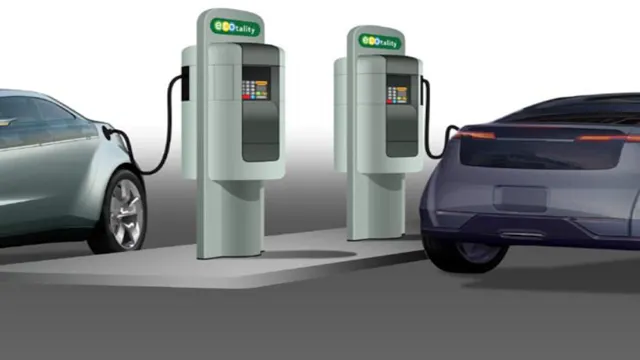The Shocking Truth About the Average Price of Batteries for Electric Cars: What You Need to Know!
Electric cars have taken the modern-day market by storm, and for good reason. Not only do they produce significantly less carbon emissions than traditional gasoline-powered vehicles, but they’re also cheaper to operate, and you can charge them at home. It seems that the future of driving is electric, but one question remains: how much does it cost to replace the battery? After all, the battery is the heart of the car, and it’s essential to understand how much it will cost to replace it.
In this blog post, we’ll explore the average electric car battery cost, so you’ll know what to expect when the time comes for a replacement.
Current Market Prices
The average price of a battery for an electric car can vary depending on its size and manufacturer. However, as the demand for electric vehicles has increased, the cost of their batteries has significantly reduced. As of 2021, the average price for a 60 kWh battery is around $10,000, whereas a larger 100 kWh battery could cost as much as $15,000.
Keep in mind that these prices are subject to change as technology continues to improve and the market becomes more competitive. An electric car battery is one of the most expensive components of an EV, but it’s necessary to achieve longer-range driving. Luckily, government incentives and subsidies are available to help offset the cost of electric vehicles and their batteries.
Overall, the future for a sustainable energy source looks promising with electric vehicles becoming more affordable by the day.
Global Battery Cost Trends
Global Battery Cost Trends At present, the cost of batteries varies significantly depending on the type of battery and its intended usage. However, a trend that is undeniable is that the cost of batteries is declining steadily. This is because the production of batteries has increased, resulting in economies of scale and technological advancements that have resulted in more cost-effective production methods.
For instance, the price of electric vehicle batteries has fallen by roughly 70% over the past decade. This trend is expected to continue, and it will likely lead to more significant adoption of electric vehicles, as well as for many other energy storage applications. As we move towards a cleaner and more sustainable future, the cost of batteries will be a vital factor that will continue to shape the market.
Domestic Battery Cost Trends
Domestic battery cost trends. If you are facing domestic battery charges, it’s important to be aware of the current market prices in legal fees that come with defending yourself in court. The cost of domestic battery charges varies depending on the severity and complexity of the case, as well as the experience and expertise of the legal professional representing you.
The national average for a domestic battery case can range from $2,500 to $15,000, with some cases costing even more. The cost of domestic battery charges can also be influenced by other factors, such as the location of the case and the type of evidence presented. It’s important to work with an experienced attorney who can explain the costs of your case and help you navigate the legal process.
While domestic battery charges can be expensive, it’s important to prioritize your defense and ensure that your rights are protected.
Variations in Price
The average price of batteries for electric cars can vary widely depending on several factors. One of the primary determinants of the cost of batteries is their size and capacity. Battery prices can range from a few thousand dollars to tens of thousands of dollars.
Another significant factor that affects the price of batteries is the level of technology used to manufacture them. As technology improves, the cost of batteries usually goes down. However, in the short term, cutting-edge technology can come at a premium.
Additionally, the geographic location of the battery manufacturer can have a significant impact on the price of batteries. Some countries, like China, have more favorable manufacturing conditions that make it possible to produce batteries more cheaply. Conversely, countries that have higher labor costs and stricter regulatory requirements may produce batteries that are more expensive.
Overall, battery prices for electric cars are likely to continue to fluctuate as technology advances and economies of scale are achieved.
Brand Name Factors
When it comes to brand name factors, variations in price are an important consideration. The price of a product often correlates with its perceived value and quality, and brand names can have a significant impact on how much consumers are willing to pay. For example, a well-known luxury brand might charge more for their products than a lesser-known brand of similar quality.
Additionally, variations in price can be influenced by factors such as production costs, marketing expenses, and competition in the market. As a consumer, it is important to assess whether the brand name is worth the extra cost and to consider alternatives that may offer similar quality at a lower price point. By doing so, you can make an informed decision and get the best value for your money.
Battery Type Factors
When it comes to buying batteries, price is often a significant factor to consider. However, the cost of batteries can vary depending on the type you choose. For example, rechargeable batteries are often more expensive upfront but can save you money in the long run as they can be used multiple times.
On the other hand, disposable batteries are typically cheaper but will need to be replaced more frequently. Another factor that can impact the price of batteries is the technology used in their construction. Lithium-ion batteries, for instance, are more expensive but often have longer lifespans and higher performance capabilities.
Ultimately, your battery choice will depend on what you plan to use it for and how frequently you need to replace it. Keep in mind that sometimes spending more money upfront can end up saving you money in the long run.
Battery Capacity Factors
When it comes to battery-powered devices, battery capacity is a crucial factor that needs to be considered when making a purchase. However, one factor that many people tend to overlook is the price variation that comes with different battery capacities. Generally, batteries with higher capacity tend to cost more than those with lower capacity.
This is because batteries with higher capacity require more advanced technology and higher quality materials, which drive up the production cost. That being said, it’s important to not only consider the upfront cost of a device, but also the long-term cost of replacing its battery. Investing in a device with a higher capacity battery may initially cost more, but in the long run, it may be a more cost-effective option as it will require less frequent replacements.
So, the next time you’re in the market for a battery-powered device, be sure to consider the battery capacity and its corresponding price variation in your decision-making process.
Factors to Consider Before Purchasing
Before purchasing an electric car, it’s important to consider the average price of the battery. The cost of replacing a battery can vary greatly depending on the make and model of the vehicle. It’s important to research the cost of replacement batteries and factor that into your decision.
Additionally, it’s important to consider the range of the car. Some electric cars have a range of only 100 miles, while others can go over 300 miles on a single charge. This can impact your daily commute and travel plans, so it’s important to determine what range you need before making a purchase.
Other factors to consider include the availability of charging stations in your area, any tax incentives or rebates for electric vehicles, and the overall cost of ownership compared to a traditional gasoline car. By considering these factors, you’ll be able to make an informed decision and find the right electric car for your needs.
Long-term Costs and Savings
When it comes to making a major purchase, such as a home or car, it’s important to consider the long-term costs and savings. The same applies to smaller purchases, including electronics, appliances, and home furnishings. Before making a purchase, it’s important to consider factors such as energy efficiency, maintenance costs, and potential resale value.
Even a seemingly small difference in energy efficiency can add up over time, resulting in significant savings on monthly bills. Additionally, investing in high-quality items that require less maintenance can save both time and money in the long run. Finally, considering the potential resale value of an item can help you make a more informed purchasing decision.
It’s important to weigh the potential long-term costs and savings before making any major purchase, to ensure that you make a smart and sustainable investment.
Battery Lifespan and Warranty
When it comes to purchasing a battery, it’s important to consider the lifespan and warranty. The lifespan of a battery depends on several factors such as usage, storage, and temperature. For example, a battery that is constantly drained and recharged will have a shorter lifespan than one that is used moderately.
Additionally, batteries that are stored in extreme temperatures, whether hot or cold, can also affect their longevity. It’s important to read the warranty of batteries before purchasing to ensure that it covers any unexpected battery failure and damages. Not all warranties are created equal, so be sure to look for ones that specifically cover the lifespan of the battery and not just manufacturing defects.
Overall, taking these factors into consideration can help ensure that you select a battery that will provide optimal performance and longevity.
Conclusion
In conclusion, the average price of a battery for an electric car can be shocking to the wallet, but when you consider the long-term benefits of reduced emissions and less dependence on fossil fuels, it’s an investment worth making. Plus, who needs gas money when you can put that towards a new pair of shoes or a fancy dinner out? So make the switch to electric and spend your money on things that matter.”
FAQs
What is the average price of a battery for an electric car?
The average price of a battery for an electric car currently ranges from $5,500 to $7,000.
Is the cost of the battery included in the purchase price of an electric car?
The cost of the battery is typically included in the purchase price of an electric car, but some manufacturers may offer separate leasing options for the battery.
How long does an electric car battery last before needing to be replaced?
The lifespan of an electric car battery can vary, but it typically lasts between 8 and 10 years or up to 100,000 miles before needing to be replaced.
Are there any government incentives or programs to help offset the cost of an electric car battery?
Yes, some states offer incentives or tax credits for purchasing an electric car, including assistance with battery replacement costs. Additionally, some electric car manufacturers may offer their own programs or warranties for battery replacement.




